Gastroenterology offers a wide range of career paths from multiple different practice settings to various disciplines within the field. With so many choices, how can GI physicians select the right track and forge a leadership position for themselves?
Seven gastroenterologists offer their insight into pursuing leadership in GI.
Question: What qualities do you think are necessary to become a leader in the GI field?
 J. Sumner Bell III, MD, AGAF, American Gastroenterological Association Future Leaders Program mentor, Gastroenterology Ltd. (Virginia Beach, Va.): To be recognized as a leader in GI one must have displayed expertise in their professional domain and be known for hard work. The personal qualities of trustworthiness, dependability and courage are paramount for success as a leader. Skills as an educator, listener, communicator and consensus builder support the leader's daily work. Certain acquired expertise in information technology, data and financial analysis, marketing and social media may be important from time to time. With a well-defined reputation, experience within an organization, communication skills, and an understanding of the winds of change the most effective leaders educate and motivate their colleagues to adopt a vision for their shared future.
J. Sumner Bell III, MD, AGAF, American Gastroenterological Association Future Leaders Program mentor, Gastroenterology Ltd. (Virginia Beach, Va.): To be recognized as a leader in GI one must have displayed expertise in their professional domain and be known for hard work. The personal qualities of trustworthiness, dependability and courage are paramount for success as a leader. Skills as an educator, listener, communicator and consensus builder support the leader's daily work. Certain acquired expertise in information technology, data and financial analysis, marketing and social media may be important from time to time. With a well-defined reputation, experience within an organization, communication skills, and an understanding of the winds of change the most effective leaders educate and motivate their colleagues to adopt a vision for their shared future.
Douglas O. Faigel, MD, FASGE, President, American Society for Gastrointestinal Endoscopy: I think the most 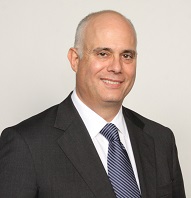 important qualities are being passionate about our specialty, being passionate about serving the needs of our patients who suffer from digestive disorders and having a sincere desire to help guide the future of our profession.
important qualities are being passionate about our specialty, being passionate about serving the needs of our patients who suffer from digestive disorders and having a sincere desire to help guide the future of our profession.
Costas H. Kefalas, M.D., MMM, FACP, FACG, FASGE, AGAF, Vice-Chair, ACG Board of Governors; President, Digestive Disease National 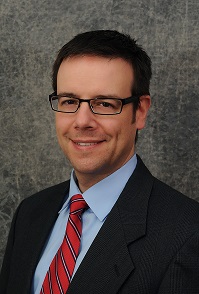 Coalition; Co-Founder and Founding President, Ohio Gastroenterology Society; Akron Digestive Disease Consultants, Inc.; Chair, Quality Assurance Performance Improvement Committee, Digestive Health Center (Akron, Ohio): Although in surveying the literature, one can find numerous lists of leadership traits and skills, most of which are universal to leadership in any field, I believe the following skills and competencies are important for a leader in gastroenterology: define, understand and implement the mission, vision, and goals of the organization; set an example of behavior; motivate others to action; communicate effectively; utilize emotional intelligence; delegate responsibility; be accountable and have integrity; be humble; challenge the status quo; take calculated risks and be willing to fail; utilize good judgment; be adaptable; manage conflict and the unpredictable; be industrious, work hard; enjoy leadership and have fun. Few are born leaders or have innate leadership skills. Fortunately, such skills can be learned and honed over time, usually through a combination of experience, example and education.
Coalition; Co-Founder and Founding President, Ohio Gastroenterology Society; Akron Digestive Disease Consultants, Inc.; Chair, Quality Assurance Performance Improvement Committee, Digestive Health Center (Akron, Ohio): Although in surveying the literature, one can find numerous lists of leadership traits and skills, most of which are universal to leadership in any field, I believe the following skills and competencies are important for a leader in gastroenterology: define, understand and implement the mission, vision, and goals of the organization; set an example of behavior; motivate others to action; communicate effectively; utilize emotional intelligence; delegate responsibility; be accountable and have integrity; be humble; challenge the status quo; take calculated risks and be willing to fail; utilize good judgment; be adaptable; manage conflict and the unpredictable; be industrious, work hard; enjoy leadership and have fun. Few are born leaders or have innate leadership skills. Fortunately, such skills can be learned and honed over time, usually through a combination of experience, example and education.
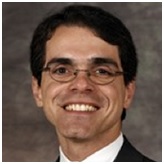 Silvio W. de Melo Jr., American Gastroenterological Association Future Leaders Program participant, Director of Endoscopy, Program Director GI Fellowship, University of Florida College of Medicine Jacksonville (Fla.): Gastroenterology is a very unique field as one can lean towards academic, either basic or clinical investigation, patient care, management or combination of them all. I believe to be a leader in this field one has to possess knowledge of all different nuances, but, more importantly, has to have the ability to cooperate and unite, guiding one's personal ambitions and aspirations and aligning them with the greater vision of the enterprise.
Silvio W. de Melo Jr., American Gastroenterological Association Future Leaders Program participant, Director of Endoscopy, Program Director GI Fellowship, University of Florida College of Medicine Jacksonville (Fla.): Gastroenterology is a very unique field as one can lean towards academic, either basic or clinical investigation, patient care, management or combination of them all. I believe to be a leader in this field one has to possess knowledge of all different nuances, but, more importantly, has to have the ability to cooperate and unite, guiding one's personal ambitions and aspirations and aligning them with the greater vision of the enterprise.
Amy S. Oxentenko, MD, FACG (Mayo Clinic Rochester, Minn.): Some of the most important skills to be a leader in  gastroenterology are to be organized, accountable, visionary, passionate, approachable, adaptable, have excellent communication skills and be a role model to others. Certainly, there are many other traits common to effective leaders, but these seem to be some of the fundamental skills that describe most of them. While leaders may not be naturally skilled in each of these areas early in their careers, they are essential skills to develop over time, given that a weakness of any these skills can prevent future leadership opportunities. There are also differing leadership styles, and while most leaders naturally fall into one leadership style over another, being able to adjust leadership styles to one that best serves an individual situation is the hallmark of some of the most gifted leaders.
gastroenterology are to be organized, accountable, visionary, passionate, approachable, adaptable, have excellent communication skills and be a role model to others. Certainly, there are many other traits common to effective leaders, but these seem to be some of the fundamental skills that describe most of them. While leaders may not be naturally skilled in each of these areas early in their careers, they are essential skills to develop over time, given that a weakness of any these skills can prevent future leadership opportunities. There are also differing leadership styles, and while most leaders naturally fall into one leadership style over another, being able to adjust leadership styles to one that best serves an individual situation is the hallmark of some of the most gifted leaders.
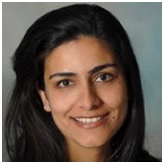 Aasma Shaukat, MD, MPH, American Gastroenterological Association Future Leaders Program participant, Associate Professor, Department of Medicine/GI Division, University of Minnesota (Minneapolis): A leader must have vision and foresight about the program they are leading. A leader must be selfless and put the needs of the program or section ahead of individual or personal needs. Finally, a leader must be resilient and have patience to see their vision through.
Aasma Shaukat, MD, MPH, American Gastroenterological Association Future Leaders Program participant, Associate Professor, Department of Medicine/GI Division, University of Minnesota (Minneapolis): A leader must have vision and foresight about the program they are leading. A leader must be selfless and put the needs of the program or section ahead of individual or personal needs. Finally, a leader must be resilient and have patience to see their vision through.
Q: What can gastroenterologists do while they are still in training to enhance leadership skills?
JSB: Leaders may arise out of personal aspirations or situational necessity. There is not one pathway. Development of a young professional reputation (trustworthy, dependable, organized) and an expertise in a special area of interest will open many opportunities to network, volunteer, educate and communicate.
Become knowledgeable about the specialty's history and the forces of change that will shape the future of gastroenterology locally and nationally. Attend divisional and departmental meetings. Express an interest in participation in organizational activities and volunteer. Seek out a mentor and establish a mentor-mentee relationship. Join a GI society; for example, the American Gastroenterological Association offers countless leadership resources and networking opportunities for trainees.
DF: I think the most important thing would be to look for leadership opportunities within residencies and fellowships. It is also important and valuable to volunteer to serve our GI societies. For example, at ASGE we have fellows serve on our committees and task forces. Finally, look for educational opportunities that specifically address leadership. These may be programs at your home institution, GI Society leadership programs (such as the ASGE LEAD program), or courses and symposia.
CK: The single most important thing a trainee can do to enhance leadership skills while in training is to identify and partner with an excellent mentor or mentors. I say mentors, because there may be one mentor who may be a great resource for leading the clinic, whereas another mentor may be heavily involved in national professional societies and may better guide the trainee to join a certain committee of a national or state professional GI society, etc.
Leadership mentors can assist the trainee to develop and implement a leadership plan, one that defines goals for learning and implementing leadership skills during training and shortly thereafter as a junior attending or faculty. In addition, such mentors can help groom fellows for the chief fellow position, if the training program offers this role. Often times, such a mentor is the fellowship program director, though trainees should not limit themselves to this resource alone.
Additional leadership opportunities in training include being appointed to a hospital or system committee, such as medical education and serving in a house staff leadership position. This position in turn may lead to service on major hospital committees, such as the medical executive committee, as a representative of the house staff. Major hospital committee service allows exposure to hospital and medical staff leadership, further expanding the potential pool of leadership mentors for trainees.
SDM: Leadership skills are present at any level in one's daily activity from the interaction with different members of the healthcare team to rounding with your staff physician. Many training programs offer different avenues to enhance such characteristics such as lectures (here at the University of Florida we have hospitality training), participation on house staff committees, as well as participation at GI societies committees, such as the AGA Trainee and Your GI Committee.
AO: The most effective thing that trainees can do in order to develop leadership skills is to get involved, and this involvement can be at a local or national level. There is a need (and frequently, a requirement) to have trainees on institutional committees. These experiences can allow a trainee to get a better understanding of the infrastructure of their institution, grant them the ability to observe local leaders in action, and begin to discern strategies that most effectively lead to positive change. Similarly, trainees can get involved with organizations on a national level.
Within the GI societies, many committees allow fellows-in-training to serve as committee members. These committee appointments can allow trainees to network with leaders in the field who have similar interests, and can be a great opportunity for trainees to demonstrate early leadership skills. However, these appointments should not be taken for granted, and merely showing up at a committee meeting is not enough. Going out of one's comfort zone and volunteering to help run a workshop or educational session, or get involved with new committee initiatives, can allow for personal growth and leadership skill development.
AS: Interact with as many staff and faculty of diverse training as possible to learn key skills. Identify mentors who are good leaders and learn from them. Finally, enhance leadership skills through formal and informal courses, lectures, seminars and workshops.
Q: How can gastroenterologists decide which leadership path is the best for them?
SDM: This is a very hard and perhaps one's most difficult decision. At the end of the day, it is all about what makes you happy. Life is too short to spend doing activities that are not enjoyable. Each different path offers its own benefits and challenges. One should not be afraid to pursue his or her passion and not be intimidated by obstacles that may be ahead.
DF: I think this begins with deciding which career path and practice style is best for you. Are you passionate about research and education? Are you entrepreneurial? Are you excited about healthcare policy? These will guide you towards academia (research and education), private practice (entrepreneur), or into larger healthcare system or hospital based practice (healthcare policy). Having said that, there are no hard-and-fast rules, and one can do outstanding research in the private practice setting, be a healthcare policy expert at a university or innovate in the hospital setting.
JSB: Identify the area of gastroenterology that you are passionate about and which setting best supports this interest. Identify a mentor and work with the mentor to define a pathway forward to an envisioned future.
CK: Deciding what leadership path to take is contingent upon the career path you have chosen after gastroenterology training. Each career path has multiple specific leadership opportunities within it. The choice of a career path is best made after consideration of the pros and cons of each option, combined with your individual interests and future professional goals. If possible, it is best to spend considerable time in specific settings during training, to obtain firsthand exposure of that career path.
For those gastroenterologists who have completed their training and whose present career path encompasses more than one career path, i.e., the private practitioner who conducts significant clinical research or the academician significantly involved in hospital administration, there may be choices to make in terms of which leadership path to follow. In these instances it is best to take stock of both your interest and skill sets prior to deciding which leadership path to pursue. If you identify weaknesses in your skill set, pursuing formal or informal education or training can overcome these weaknesses and allow you to move forward with your leadership plans and aspirations.
AO: I believe that the best approach is to pick the practice environment that is best suited for an individual (whether it be academia, private practice or a hybrid position), and look for opportunities to further develop leadership skills within that environment. It is critical to find the type of environment that is best suited for each provider, given the potential to thrive and lead will directly correlate with satisfaction with one's career. Leadership opportunities rarely fall on one's lap, but instead, are earned through commitment and attention to detail. Natural leaders are often the ones that envision potential growth and opportunity within a practice or organization, and are willing to go the extra mile in order to bring effective change to a practice.
In an academic environment, leadership opportunities develop when one carves out an area of expertise, through clinical work, research, speaking engagements, publications, grants, committee work and/or educational activities. There are many ways to lead in an academic environment, depending on the focus of one's career. Those with a hospital-based practice can additionally lead in the areas of service hand-offs, timely and consistent application of care process models, quality initiatives to reduce adverse events, near misses, or unnecessary readmissions and provide effective transitions-of-care to outpatient environments. Within a private practice environment, the clinical and endoscopic arenas are the focus, but leaders are essential to help manage the practice and oversee the collaborative education and research endeavors that may be present.
AS: Gastroenterologists should choose the area that they are most passionate about, and have had success in, an area that they understand well and matches their personality.
Q: What areas in GI today do you think offer the best opportunities for leadership?
JSB: All areas of GI offer opportunities for leadership. Gastroenterology in all settings (academic, private practice, etc.) is being buffeted by the same winds of change related to funding pressures, increasing regulatory requirements, cuts in reimbursement and an emphasis on value-based medicine. With the consolidation of practices and hospital systems, a proportionally larger number of leadership opportunities will arise in rapidly growing organizations, such as integrated health systems and hospital-based practices. On the other hand, private practices are changing as well and opportunities for leadership growth and development will become available to individuals as practices become increasingly sophisticated (defining out-comes, IT, finances) and explore consolidations, joint ventures, new revenue lines, and the future of population health management.
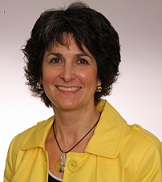 Colleen Schmitt, Immediate Past President, ASGE: Medical systems and hospitals now highly rate leadership skills as attribute indicators for physician success, and these skills are imperative for practices to collaborate in a healthcare environment that is increasingly focused on population health. Leadership opportunities are ripe for all gastroenterologists, but I would particularly emphasize those for women, and especially women in private practice.
Colleen Schmitt, Immediate Past President, ASGE: Medical systems and hospitals now highly rate leadership skills as attribute indicators for physician success, and these skills are imperative for practices to collaborate in a healthcare environment that is increasingly focused on population health. Leadership opportunities are ripe for all gastroenterologists, but I would particularly emphasize those for women, and especially women in private practice.
ASGE has been the leading society to promote women to president of a professional society representing gastroenterologists and has strong leadership growth opportunities for women and minorities through the Leadership Education and Development program. This important program was launched three years ago, after our Board identified gaps in diversity. The program includes educational programs at our largest national meetings, a series of webinars, and a weekend leadership retreat at the ASGE IT&T center that trains on important topics such as negotiation, effective communication, leadership strengths and weaknesses, and work-life balance. Programs such as LEAD are essential as trainees move into employed positions, in order to promote the highest level of physician-led, patient-centered care. The Diversity and Membership Committee of the ASGE continues to provide educational opportunities through webinar series and sponsoring networking and educational meetings at DDW.
DF: Regulatory and payment reform will continue to lead to consolidation in the healthcare marketplace. This will mean larger medical groups or more amalgamation of GI practices into hospital or healthcare system based structures. This will create more leadership positions within GI as these changes are put into place.
CK: As Dr. Peter Angood, President and CEO of the American Association for Physician Leadership (AAPL) has stated, all physicians are leaders. This concept is part of the very nature of our profession. Whether leading a research project as the principal investigator, managing a clinical team of advanced practitioners and nurses or simply managing the care of an individual patient, what we do on a daily basis as gastroenterologists involves leadership.
Opportunities for leadership exist in academia, private practice and industry. In academia, leadership positions include department or section chief, clinical or research chief, fellowship program director, chief of endoscopy, medical director, director of quality assurance and/or performance improvement, to name a few. There are leadership opportunities in private practice as well, including managing partner, medical director, director of endoscopy and director of quality assurance and/or performance improvement. In both settings, even those gastroenterologists that have no official leadership title are leaders.
Outside of one's daily routine, participation in committee work and service at various levels, including institutional (hospital or practice), state and regional, and national, affords gastroenterologists multiple opportunities for leading and leadership positions. Participation in state GI societies or patient advocacy organizations, such as the Crohn's & Colitis Foundation of America or the National Pancreas Foundation, are specific examples of organizations that solicit physician involvement and leadership for those who are interested. The national professional GI and liver societies (AASLD, ACG, AGA and ASGE) are additional, prime examples of organizations with key leadership opportunities, beyond serving on the board of trustees or officer positions of these societies.
For example, the American College of Gastroenterology currently has 22 active committees, allowing for the participation of more than 500 ACG members. These committees allow members to actively participate on general or specific assigned tasks and projects which advance the mission and vision of the ACG. These committees also allow for appointments as committee chairs, vice chairs, or subcommittee or task force chairs.
Furthermore, the ACG is unique among the national GI societies because of the existence of an ACG Board of Governors, made up of over 75 governors, all of whom are elected by local constituencies. This body of leaders has its own leadership structure, which includes Governors committees, Regional Councilors, a Vice-Chair and a Chair. The Board of Governors is both an organic body with "boots on the ground" in each state or region represented, as well as a direct conduit of information from the membership through the governors to the ACG Board of Trustees. The Board of Governors and the ACG committees serve as two important and effective incubators for new leaders and leadership development within the College. In fact, many of the most recent past presidents of the College had served as former ACG committee chairs, ACG governors, or both, prior to their presidencies. Seven of the current 23 members of the ACG Board of Trustees are past, current or future Chairs of the ACG Board of Governors.
SDM: Gastroenterology offers ample leadership opportunities from the micro-environment (one's own practice) to the macro-environment, such as the debate on healthcare disparities, colorectal cancer screening and reimbursement. Medicine in general is changing and gastroenterology is no different. I believe that pursuing one's passion is the pathway for a successful leadership career.
AO: Anyone can become a leader in any area of gastroenterology, and it is far more important to focus energy in an area one is passionate about, rather than to select an area simply for the leadership potential. However, if a gastroenterologist wants to consider an area of GI where there is great opportunity for advancement and leadership, one should really look to areas that are not yet saturated and has the most potential for impact. In the clinical and research arenas, a focus on novel endoscopic and therapeutic regimens for challenging-to-treat conditions could allow a young investigator to make a mark. Research in the areas of obesity, gender and ethnic differences/disparities, novel non-invasive markers of disease or disease severity and the microbiome are among many areas of ongoing growth.
An area that will undoubtedly continue to be of interest is in the development of individualized medicine. As we learn more about genomic sequencing, we will be able to develop therapies for GI conditions that are targeted at the individual level. We have seen amazing advances in the oncologic field, and there is no doubt similar opportunity within GI. We have some of the deadliest cancers within our specialty, and if we are able to continue to make strides in targeted therapies for those cancers, we will be able to see advances similar to those made in lung cancer over recent years.
In the last decade, we have seen a focus on quality metrics, and that lends itself to areas where leaders will continue to emerge who have an interest in improving healthcare delivery. Additionally, physicians as a whole have little finance or business background, so those with advanced training in business administration will become natural leaders within the practice. Finally, while there are many young gastroenterologists interested in a career in "medical education." There will continue to be leadership opportunities for those who take the initiative to study innovative educational delivery methods in the era of millennial learners alongside the recent changes in graduate medical education.
AS: GI is a very diverse field and we have examples of successful leaders in every aspect of the field, be it basic, translational, clinical sciences or the business of medicine. Generally, clinical research or translational research offers more opportunities to establish a leadership role.
Q: Once GI physicians begin to practice, how can they continue to hone leadership skills?
JSB: Upon entering practice the GI physician should be focused on his or her clinical reputation and become aware of the organizational landscape by attending practice, divisional and/or departmental meetings. One should express an interest in participation in organizational activities and find a respected mentor. Volunteer for a standing or ad hoc committee, either at your institution or with your professional association. Develop new skills outside of one's clinical skill set that will prove valuable to the organization. Attend an educational meeting every few years that focuses on non-clinical information and the development of new skills such as a mini-MBA, forces of change, data analytics or leadership development. Upon completion of this non-clinical educational activity look for an opportunity back home to use the new information and skills to help solve a particular problem and shape a better future for ones patients, community, practice and organization.
DF: First, learn by doing. Take advantage of leadership opportunities within your practice or hospital. Second, network with leaders in the field. This can be done by attending national meetings (e.g., DDW or EndoFest) or volunteering to serve our GI societies. Third is through continuing education such as at our ASGE practice management, quality, endoscopy unit directors and GO courses.
CK: There are a number of means by which to refine your leadership skills, once in private practice. Often times, a combination of one or more of the following may be pursued. These include partnering with a local mentor in one's own institution or practice. Experience is easy to find around you; simply seek it out from a senior colleague or partner or from an engaged mid-career colleague. Working with a leadership coach or mentor in your institution or in your city can provide a scheduled time to review your leadership strengths and weakness and to develop a formal plan with which to close your own personal leadership gap.
Completing an online program or course on leadership or similar disciplines (i.e., managing people, managing teams, conflict resolution, etc.) allows you the opportunity to obtain desired knowledge and skills at your convenience. Attending a few days or a week-long leadership-related course at a university allows for an intense and live educational experience on leadership, with professors and classmates. As an example of this, I was honored to have been selected for an ACG Salix Leadership Training Award and as a result, attended the course, "Governing for Nonprofit Excellence: Critical Issues for Board Leadership," at Harvard Business School. This five day-long course was dedicated to formal training in board leadership and imparted a skill set which defined excellence in board service.
Joining an organization or society devoted to leadership development, such as the American Association for Physician Leadership (AAPL), affords members the opportunity to not only choose from a number of leadership-related courses (both online and onsite), but also allows completion of a formal pre-requisite program in anticipation of applying to one of four AAPL-affiliated graduate business schools. I chose this latter route and completed a Master of Medical Management through both the AAPL and Carnegie Mellon University in Pittsburgh. My particular degree program included an emphasis on executive leadership and has served me well.
There are numerous such advanced degree business programs from reputable institutions which offer degrees such as an MBA, MHA, MMM or an MSc in leadership, to name only a few. These programs vary in duration, course concentration, class composition, and setting (online versus onsite) mix, among other characteristics. Finally, leadership skills must be exercised to be maintained and enhanced. Participating in one of the numerous activities previously described allows you the ability to do this, while at the same time advancing the mission and vision of the entity or organization which you are leading or in which you are a leader. To paraphrase a former professor, leadership development is self-development; it is a life-long journey, not a destination.
SDM: Leadership skills can be maintained, and even enhanced, while in practice. Clinical practice offers very unique challenges such as dealing with different goals and personalities of different partners and staff, negotiating with insurance companies, negotiating with suppliers. I would recommend one continue to attend leadership workshops offers by universities as well as gastroenterology societies, such as the American Gastroenterological Association.
AO: Attending any targeting training in general leadership skills can be helpful, which may include managing conflict, leading in the era of change, building an effective team, and developing effective communication skills. Leadership skills can also be honed by going outside of your comfort zone to learn new skills. It is rare for leaders in gastroenterology not have a finger on the pulse of the clinical practice, research endeavors, educational programs, quality initiatives and finance, regardless of the practice environment. While many gastroenterologists will have a focus in one or more shields, it behooves any leader to learn more about the areas they are not as familiar with, as it allows a more comprehensive vision of the practice. At national meetings, physicians traditionally tend to seek out topics of interest or familiarity, but it can be extremely useful to attend sessions that are out of one’s typical area of interest. The GI organizations have many leadership training opportunities for members, including Train-the Trainer programs, workshops on leadership skill development.
Honing leadership skills also requires self-reflection on what skills are mastered and which have to be further developed. For the developing leader, getting candid feedback from co-workers and other work associates through multi-source evaluations can prove to be humbling, but can also effectively highlight areas of deficiency that may not be evident to the leader. If such feedback mechanisms are not evident, anyone hoping to refine leadership skills should inquire within the practice or organization of how to go about initiating such a review. Being a leader does not mean being perfect, but what defines a leader is the reaction shown and insight when mistakes do occur.
AS: Recognize their interest and invest time and energy developing it. Take initiative and be pro-active about seeking and availing opportunities to develop and further leadership skills. Put forth ideas to existing leadership and have a follow-through plan.

